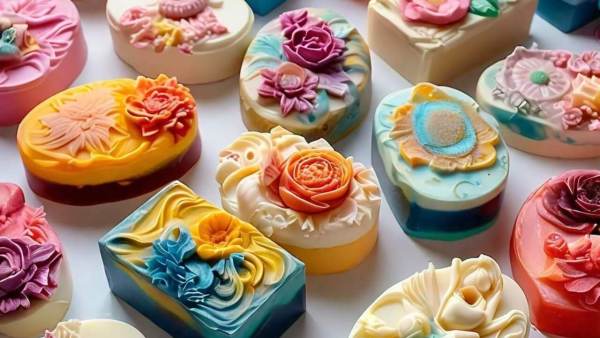Which soap did you bathe with in your childhood? A look at some special bath soaps from the 70s till now

Evolution of Bath Soaps in India Do you remember which soap you used to bathe with in your childhood? Or which soap did you find in the bathroom when you visited your grandmother's house? Just as we have memories of food, places, relationships, people etc., similarly memories have an inseparable connection with objects as well. If we go back a few decades, we remember how bath soaps were in those days. Their branding style, the same kind of bath soap for everyone in the house or selection of soaps based on colours…all these are also a part of our memories.
Bath soaps are an important part of our daily lives. Their main purpose is to clean the body and keep the skin clean and fresh. Soap is a type of surfactant (surface-active agent) that helps in removing dust, dirt, oil and bacteria from the skin. The properties and types of soap may vary depending on its ingredients and manufacturing process.
The journey of Bath Soap in India from the 70s till now
Bath soaps have a long and rich history in India. Over time, consumer tastes and preferences have changed, leading to the emergence of several major brands and products in the soap market. From the 70s to the present, several major brands have dominated this market. Here we will mention the major soap brands that have made a deep impact on the Indian bath product market.
1970 Of decade:
In the 70s, soap was a basic necessity among Indian consumers. During this period, domestic and international companies dominated the market with their products. Some of the major soap brands of that time included:
- Lifebuoy (Lifebuoy): This soap, manufactured by Hindustan Unilever, became extremely popular due to its disinfectant properties. At this time it was associated with hygiene and health, and was popular in both rural and urban areas.
- Hamam (Bathroom): It was an ayurvedic soap introduced by Hindustan Unilever. It focused on naturally cleansing the skin, and was known for its herbal properties.
- Lux (Lux): This was another major brand of Unilever, which focused on beauty and skin care especially for women. It was called the “soap of the stars” as it was endorsed by Bollywood actresses.
- Surf Excel And Sunlight (Sunlight): Apart from bath soaps, the use of other cleaning products was also increasing at this time. However, some people also used laundry soaps like Surf Excel and Sunlight for body cleaning.
1980 Of decade:
In the 80s, the popularity of Ayurveda and natural products started increasing in the soap market. During this period, some new brands also emerged in India:
- Santoor (Santoor): Manufactured by YSSC Ltd, Santoor was a unique soap infused with sandalwood and turmeric. This soap quickly became popular as it emphasized on the natural glow and beauty of the skin.
- production (Nirma): Nirma brought a revolution in the soap market with its affordable prices. It became extremely popular especially in rural India.
- Pierce (Pears): This was another famous brand of Unilever which was famous for its transparent and glycerin based soap. It was considered safe for delicate skin.
1990 Of decade:
The personal hygiene and beauty products market boomed in the 90s. Several major international brands entered the Indian market at this time:
- Dav (Dove): Dove positioned itself as a moisturizer-rich soap. The soap was considered particularly suitable for dry skin and its marketing message focused on skin care.
- Saffola (Saffola) And Dettol (Dettol): Dettol gained popularity in the market due to its antiseptic properties. It was used not only for bathing but also for many household purposes due to its antiseptic properties.
2000 Of decade And Ahead:
Since the 2000s, the Indian soap market has grown rapidly, with many ayurvedic and herbal brands making their mark in the market:
- patanjali: Under the leadership of Baba Ramdev, Patanjali introduced a wide range of Ayurvedic products, including Patanjali soap. This soap is completely based on natural ingredients and has been adopted by a large number of Indian people.
- Medimix (Medimix): This soap became famous due to its herbal and Ayurvedic properties. It is said to be useful for various skin diseases and problems.
- Khadi Soap (Khadi Soap)Khadi soaps are made from herbal and natural ingredients and their marketing is completely focused on environment and health.
The soap industry in India has come a long way since the 70s. While the 70s focused on disinfectants and cleaning, the 90s onwards saw a rise in skin care and natural ingredients. Today's consumers choose soaps not only for cleaning but also for keeping their skin healthy and beautiful. Over time, the demand for ayurvedic and natural soaps has also increased, which are linked to Indian culture and traditional healing practices.
